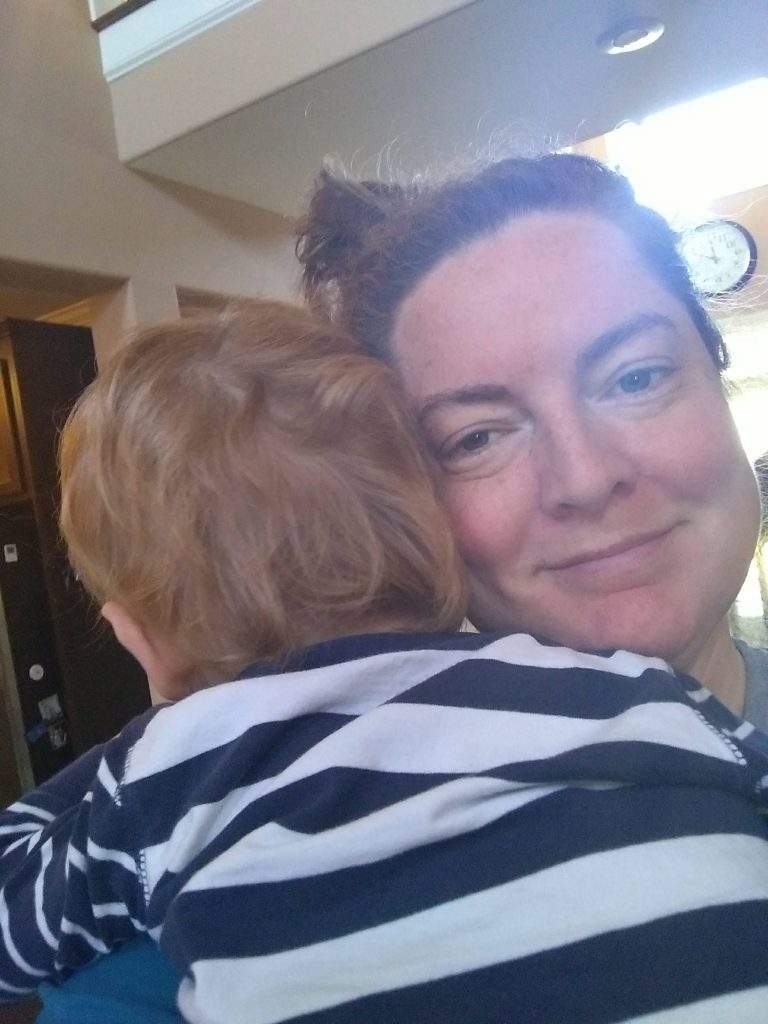I had a thought the other day that helps me as I parent daily and which I am super excited to present: We should move from gentle to generous parenting.
So. I don’t have anything especially against “gentle” parenting. I get the point from moving from punitive, harsh parenting to gentle parenting. There is a lot of good advice from people advancing “gentle parenting.”
But the term, as well as “positive parenting,” has never sat well with me. It misses too much of what healthy parenting is, which is often grueling and difficult. It makes it seem like it’s just a choice: to be gentle or not. There is a lot to parenting that quite plain is not gentle. I perhaps take such strong issue with the term, because I document the age-related stages children go through (see the home page of this website). These stages are the times when children become out of control, angry, whiny, more demanding, etc., but in which new mental abilities are forming. The response to this cannot and will not always be “gentle.” When my seven year old is growling at his sister, because his stage is such that he is unusually interested in “justice,” and he is doing so because his sister is purposely poking and harassing him, because she’s five and that’s her stage, I would call my response to this a lot of things, but “gentle” is not one of them. The response needs to be pro-active, responsive, swift, and unequivocal. There is a certain messiness to all of it that we have to embrace and deal with.
I also take issue with “gentle” and “positive” parenting, because the attitude is still “we’re molding the child, we’re just doing it positively.” We’re still, lovingly, pressing on children to go on bed on time and do other things we as a society consider to be ideal behavior. But you need to understand that with my research, I fundamentally believe that there are times when children become totally out of control, and we need to be more radically accepting of it. For instance, some children tend to stay up really late during brain growth. These are really ripe times to take advantage of. At these times, children often have something on their mind that they want to talk about. I do not think that as adults, thus supposedly wiser, we should press them to go to bed because we “know better” for them, which is a sentiment you can easily find in parenting books. Research shows that parents who are tolerant of behavior that we find really egregious, such as fights, skipping school, etc., but who invest in their children educationally, produce really healthy children. See for instance this article about Super Siblings from Time. That children get totally out of control, but for the reason that it’s their growth (think of it as like “Hulk” turning into a strong monster), and we thus lean into it is the reason for the title of my book series about this, Misbehavior is Growth.
When I thought of this idea of “generous parenting,” everything really clicked for me. It is a two word phrase that you can keep close to you to help in trying situations. I have given the advice before to “assume abundance.” When your child is crying for a strawberry popsicle, and you don’t have any, instead of telling the child, “we DON’T. HAVE. ANY,” you can start thinking, “well we have strawberry yogurt, strawberries,” etc. You assume that a solution likely exists, even if not immediately known. This is the handiest tool I’ve found, to keep close to my chest, to make most situations with children well. This idea of “Generous Parenting” sums this up eloquently.
I used this idea of “generous parenting” just this morning. My daughter can get very demanding with how much food she wants. She asks for cereal, eats two bites, then, no, she wanted a hot dog. Every morning when I get up now, I think, “It’s breakfast time. It’s time to abundantly feed my children.” And I happily do all that is necessary and ask her what she wants, providing it first thing in the morning. I anticipate her need. It helps to get the day off on the right foot. Generous Parenting.

This ties back to the age-related developmental milestones in a big way. My argument is that these demanding stages are a biological feature of children, not a nuisance. They become relentlessly demanding at age-related times of brain growth so that they can get their intellectual, emotional, and physical needs met. It is prewired in children to need adult mentorship. By biological design, children need our near constant presence. If we could learn this and accept this, we might change our attitudes about it and finally, maybe, get the resources we need for this incredibly demanding life task of parenting and educating a child. I don’t mean you, the person reading this, do more. I mean that people peripheral to the primary caregiver finally start pitching in more: spouses, extended family, educational systems. In American educational systems, we typically let one teacher languish in a classroom with 25-30 students, often 1/3 of which have special needs. This is just absurd. This is the opposite of Generous Parenting. Long standing ideas that children should not be “spoiled” have stood in the way of just finally getting the resources needed. Children need our near constant presence. Period. Stop resisting it. See my piece, Nonresistant Parenting.
In my new book, Towards Liberalism, I take our entire current modern ethical framework to task. I begin my book with the psychological experiment known as “Rat Park.” Before this experiment, some studies done on mice offered them two choices: water or water laced with cocaine. These rats, who were caged, chose the water with cocaine to the point of dehydration and death. But when another scientist, Dr. Bruce Alexander, tried the experiment but put the rats in “Rat Park,” in which they were allowed to roam, socialize, and have sex, results were different. On average and over time, they picked plain water.
Rat Park shows the generous mindset we need. This is what I am fighting for. It’s why I wrote Towards Liberalism. The word “liberal” itself tends to mean “abundant.” Give liberally. It also hints that we do not need to control or restrict things: we can be highly forgiving of most child behavior and they will turn out well.
Today, we still operate as if we humans are like the caged rats. If we were the caged rats, we would indeed need a strict discipline to choose water over cocaine. But if our basic needs our satisfied, we do not. Our modern thoughts still revolved around “not spoiling” children and that we are in the cowboy’s seat, disciplining the horse we are riding. I reject this entirely. Really, we as an entire society are still operating based on our trauma-inflicted selves (as rats in a cage would be), not our authentic selves, which, by nature, are full of vitality.
I don’t even call my approach to children “discipline” anymore. I do not think any part of children needs changed or altered. I think human nature is already designed well–see again my work on child development. Human nature is weird and rocky and messy–but awe inspiring and full of vitality. We do not need to “discipline” our children. We need to fully, lovingly, generously nurture them and lean into their development. They thrive under this.
Be sure to see my series Misbehavior is Growth, my new book Towards Liberalism (due summer 2020), and follow me “The Observant Mom” on all the various social media outlets. 🙂

One thought on “From Gentle to Generous Parenting”